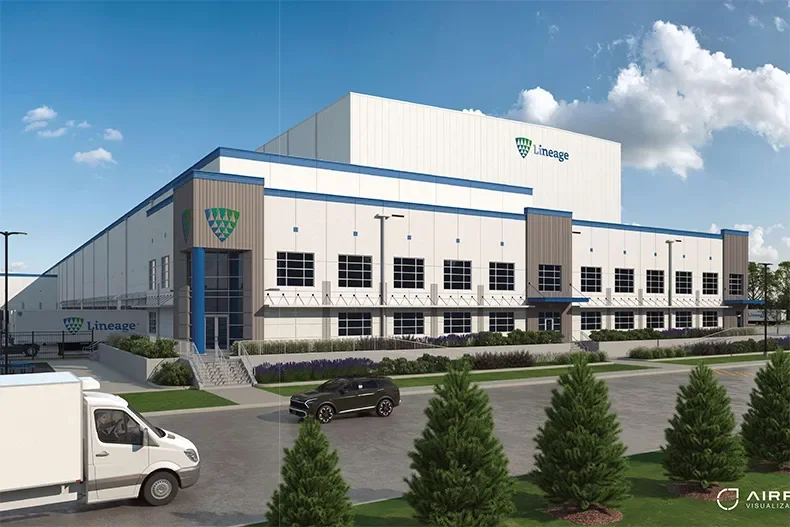Kansas City, Sept. 23, 2025 — In a packed room on a rainy fall morning, MetroWire’s Retail-Office Summit convened top voices from Kansas City’s commercial real estate community to tackle a central question: What will define successful office and mixed-use projects in the next 3–5 years?
The consensus: tenants are demanding more—better design, more flexibility, curated amenities—and developers must rethink fundamentals to deliver in a market reshaped by COVID, rising construction costs and global events like the 2026 World Cup.
From Flex to Flight: The New Office Tenant Playbook
Tom Ward (Kessinger Hunter) kicked off with a market reality check: while early pandemic shifts saw tenants push for shorter, more flexible leases, today’s rising construction costs have reversed that trend. Tenants are now locking in longer terms, especially in Class A office spaces that offer modern amenities, walkability and energy.
“Flight to quality” remains dominant. Tim Ockinga (JE Dunn) added that landlords must now build spaces better than home offices to win talent back. That means open collaboration zones, cafes, on-site fitness with active programming, and ample “third places” within the office.
Andrew Brain (Brain Group) observed growing interest in fractional-use spaces — shared training rooms, conference suites and drop-in work zones that tenants can access without paying for full-time occupancy. His Park 39 project is now 98% leased, up from 50% pre-COVID, driven by flexible usage models.
Repurposing & Suburban Shifts
Ward noted that while C-class buildings continue to struggle, B-class space remains competitive in suburban markets. Urban locations are seeing selective conversions to multifamily, especially where tax credits are available.
On the construction side, Ockinga cited JE Dunn’s pivot to prefab manufacturing as a way to combat labor shortages and inflation. “Labor is the top constraint,” he said. “We’re innovating by building offsite in controlled environments—it’s safer, more efficient, and helps balance limited skilled workforce.”
Programming, Retail Synergy & Amenity Wars
Audrey Navarro (Clemens Real Estate) highlighted the value of retail as placemaking. Coffee shops, plazas and pop-up spaces help lease-up velocity in new mixed-use developments, especially in emerging submarkets.
But she stressed that it’s not just design; it’s about programming. Landlords like Corporate Woods are hiring staff to activate common spaces with workshops and community events, borrowing tactics from multifamily to boost tenant retention.
Above: Attendees of the MWM KC RETAIL + OFFICE SUMMIT networking before the panel discussion.
Capital Stacks & Creative Financing
Brain was blunt: “Office is a four-letter word to lenders right now.” His firm is front-loading equity—75% or more—on new deals while seeking nontraditional financing paths. Navarro shared a compelling recent deal on the Plaza where a seller, driven by legacy rather than returns, offered 2% seller-financing to achieve his desired valuation.
Where Economic Development Meets Real Estate
Samantha Jefferson (Kansas City Area Development Council) emphasized that company relocation decisions are increasingly tied to culture fit. Suburban settings appeal to distributed workforces; urban neighborhoods win with lifestyle and walkability. The key, she said, is matching space to company DNA.
She also noted the KCADC’s growing role in positioning Kansas City to national and international firms, especially ahead of the 2026 FIFA World Cup, which she called a “worldwide commercial for our region.”
Looking Ahead: 2026 and Beyond
Panelists were asked to forecast the next 3–5 years in office and retail:
Ward: Flight to quality will continue. As interest rates ease, Class A leasing and development will pick up.
Brain: Fractional space and flexibility will be key. Landlords must add shared-use environments to compete.
Navarro: Kansas City must avoid a one-size-fits-all approach. Success will come from diversity of inventory.
Ockinga: Corporate buildouts are on the rise again. Large tenants are ready to reinvest in headquarters space.
Jefferson: The key to long-term growth? Talent. Kansas City must continue producing a skilled, accessible workforce.
The final word came on market activity expectations. Most panelists predict moderate gains in leasing and transactions in 2026, spurred in part by the World Cup and improving capital conditions.
Next Up at MetroWire: The Industrial Summit, Oct. 30, will explore trends shaping KC’s booming logistics and manufacturing landscape.
Header image: The 2025 MWM Retail + Office Summit panelists from left to right–Tom Ward, Beck Johnson (Moderator), Samantha Jefferson, Tim Ockinga, Audrey Navarro, Andrew Brain, and Russ Pearson with BoxDevCo Real Estate at the podium.






